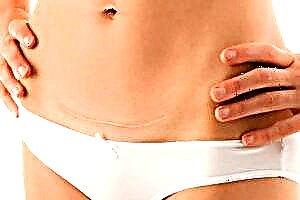
The organism of babies is arranged in a completely different way. Many manifestations of its functioning lead parents to real confusion. This article will tell you what to do for dads and moms when a child has an eructation.
Causes
Belching doctors call the return of food from the mouth after the child has eaten. Each age has its own criteria for the norm.


Many, even novice parents know that babies in the first months of life constantly regurgitate food after feeding. This does not mean at all that the child has any deviations in the state of health. As a rule, this symptom is completely physiological and speaks of the normal functioning of the gastrointestinal tract of a newborn baby.
The appearance of belching in a child at an older age, and especially after eating, should alert parents. In most cases, this symptom already indicates about the presence of trouble in the baby's health... If adverse symptoms of belching persist in the child, then in this case, you should not postpone a visit to the doctor.


A variety of reasons can cause belching in babies of different ages. Some of them are completely physiological, while others speak of the presence of any pathology in the child's body.
Currently, doctors distinguish several dozen different diseases in which a child may regurgitate. Many parents believe that only diseases of the gastrointestinal tract contribute to the appearance of this adverse symptom in a baby. However, this is not at all the case.

Belching of food in a baby occurs due to the fact that the stomach contracts when the esophageal sphincter is not closed. This situation provokes the reflux of food contents in the opposite way and its exit from the mouth.
There are several types of belching. In most cases, it is a food form, when swallowed food is separated. There is also belching of air. It can develop in both adults and toddlers.

In this case, the food eaten passes from the stomach to the intestines, and air is released from the mouth. This feature allows our body to equalize disturbed gastric pressure, which changes during digestion. In healthy people, air is emitted in such insignificant quantities that they simply do not notice it.
A wide variety of reasons can lead to the appearance of belching in babies. First, it should be noted - in what situations this manifestation is very physiological. In this case, parents should not panic, but only need to pay attention to the child's eating behavior.

Physiological eructations quite often appear in babies who have active conversations during a meal. Air that enters in large quantities during such a conversation mixes with food particles and enters the esophagus. This condition rather quickly leads to stretching of the hollow organs of the gastrointestinal tract, leading not only to the formation of belching, but also to a feeling of fullness in the stomach.
Insufficient chewing of food is also a fairly common cause of belching in babies. Incoming lumps cause stretching of the esophagus, and then the stomach, which leads to excessive overflow of these organs.


In order for the food lump to be well chopped, the food needs to be chewed very well. This situation is quite common in babies of the first years of life, who have already "moved" to a common table and eat ordinary food with adults.
Haste while eating is also quite often a provoking cause of belching in babies. Children who attend a large number of sports sections and educational circles are quite often inattentive to the culture of table behavior.

The eternal rush and attempt to attend all the planned activities often contributes to the fact that the child swallows large pieces of food, which he does not carefully swallow. Such a frequent situation not only provokes the appearance of frequent belching in the child, but is also the starting point for the development of chronic diseases of internal organs in the future.
Doctors recommend that all family members not eat food during or immediately after any severe psychological stress. The physiological process of digestion is inextricably linked with a certain innervation. A large number of nerves are suitable for all organs of the gastrointestinal tract, which ensure the correct contraction of their walls (peristalsis).

Medical experts have long noticed that eating food in a state of emotional arousal leads to the development of belching and other very adverse symptoms.
Certain foods also contribute to the backward release of the food bolus. These include sodas and kvass, oxygenated cocktails, onions, some dairy products (especially whole cow's milk), many types of legumes and cabbage.


Eating such food not only contributes to the appearance of belching in the baby after eating, but can also cause severe gas formation.
There are also pathological reasons leading to the appearance of this adverse symptom in a child. In the overwhelming majority of cases, these are gastrointestinal pathologies. According to statistics, they become the culprit for the development of belching in babies in about 90-95% of cases. Other diseases of the internal organs are much less common triggering causes.

Among the most common pathologies of the digestive tract are the following: pancreatitis, gastritis, duodenitis, liver and gallbladder diseases and many others. In most cases, these diseases occur in babies in a chronic form. Their frequent exacerbations only contribute to the persistent preservation of belching in the child.
It is practically impossible to eliminate the adverse manifestations of these pathologies without therapy for the underlying disease.

A fairly common cause of belching in a child is a peptic ulcer. This pathology can be associated with the stomach or duodenum.
Improper nutrition, long breaks between meals and severe stress are common causes of this disease in childhood. This pathology manifests itself in a child, as a rule, by the development of an eructation. It can be either with the release of food or air.


Much less often, various diseases of the internal organs can become the cause of belching in a baby. Pathologies of the cardiovascular system, especially those proceeding in a rather severe form, lead to a violation of the pressure inside the abdominal and chest cavity. This situation contributes to the development of severe belching symptoms in the child.
Children who are overweight also have adverse symptoms quite often. A large amount of adipose tissue puts pressure on the diaphragm, which causes disturbances in the movement of the food bolus in the physiological direction.


The occurrence of belching in obese babies is associated with the development in the child of a relative failure of the esophageal sphincter. Normally, this anatomical formation does not allow food from the stomach to go back into the esophagus.
Belching can have a wide variety of tastes:
- Sour taste in the oral cavity after refluxing food may indicate existing problems in the work of the gastrointestinal tract.
- If a child feels bitterness in his mouth, then, as a rule, in most cases, this symptom indicates that the baby has problems in the functioning of the liver, gallbladder or biliary tract.


- Fetid smell of eaten content is a very unfavorable symptom. It appears mainly when a child has excessive fermentation processes in the stomach or upper intestines.
If the child regurgitates food together with air, then this manifestation is called aerophagia. This condition can be both physiological and develop with a variety of pathologies. Errors in the daily diet are also common causes of this condition.


You should not ignore the appearance of belching in a child. Prolonged throwing of sour or bitter contents into the esophagus can lead to the development of very unfavorable conditions.
Doctors-gastroenterologists say that this process becomes a triggering reason for the further development of dangerous chronic diseases, and in some cases even contributes to the growth of neoplasms.
Belching with a bitter taste can also occur after prolonged use of certain medications. This situation is due to the fact that almost all drugs are "processed" through the liver, and only then their active metabolites enter the bloodstream and reach the necessary internal organs.

Doctors note that taking muscle relaxants can lead to a violation of the tone of the sphincters, which causes the child to maintain a persistent belching for a long time.
A rather rare reason leading to the appearance of this adverse symptom is also the performed surgical operations. In some cases, belching after such interventions is transient, that is, it completely stops after some time.
If the operation technique is violated, there may be operational complications that lead to the appearance of unsuccessful symptoms of dyspepsia in the child.


Age features
The appearance of belching at each age requires separate consideration. The reasons for the development of this condition in babies can be very diverse.
Every mother can identify the triggering factors that contributed to the appearance of physiological belching in a child. To do this, she only needs to more closely observe how the baby behaves at the table.

If, in the opinion of the parents, there are no compelling reasons that would serve the development of belching in a child, they should definitely show the baby to the pediatrician. In no case should this unfavorable symptom be left without proper attention.
Each age requires a unique diagnosis. The appearance of belching in an infant and a schoolchild cannot be equated.

In newborns and infants
The appearance of an eructation in a child under one year old is quite often the simplest sign that the child is just completely full. This is quite easily explained by the peculiarities of the physiological development of babies of this age. The digestive tract of a one-year-old baby is not arranged at all like that of older children.
The stomach volume of a newborn baby is tiny. It will only increase as the child grows and develops. To saturate the baby in the first days of life, only a few milliliters of breast milk is enough.

At the beginning of lactation, it is quite fatty and has the necessary calorie content for the development of a child's newborn. A fragile esophageal sphincter contributes to the fact that the child has frequent belching.
To prevent the development of chronic diseases of the gastrointestinal tract, children's doctors recommend not to put the baby in a horizontal position immediately after feeding. This simple measure will prevent food contents from being thrown backwards.
For proper digestion, support the baby on your hands in an upright position until it spits up.


Spitting up several times should not scare the parents, as it may be a completely physiological reaction of the baby.
If the baby is quite emotional or has some kind of diseases of the nervous system, then more favorable situations should be chosen for feeding.
First, you should calm the child well. Some overly emotional babies are beautifully rocked in the arms of their parents. Feed your baby in an atmosphere of maximum peace of mind.

Children 2-3 years old
The appearance of belching in children of this age is quite often the cause of disturbed behavior. Children 2-3 years old can already chew food, since they have the required number of teeth in the mouth. To prevent the appearance of belching in a child from a very early age, he should be taught to the basics of correct eating behavior.
Parents should be sure to explain to the baby that all food must be thoroughly chewed. This will reduce the occurrence of adverse symptoms, especially belching and heartburn.

At this age, the formation of the organs of the gastrointestinal tract is still undergoing formation and development. It is important that babies 2-3 years old receive in their daily diet all the nutrients and trace elements necessary for their growth and development.
For optimal digestion, your baby should eat at least 5-6 times a day. Servings should be age appropriate. Overfeeding the child only contributes to excessive stretching of the walls of the esophagus, which leads to the appearance of pronounced belching in him.

In children from 5 to 7 years old
The appearance of belching in babies of this age should be a good reason for parents to see a doctor.
It is fairly easy to identify eating disorders in children of this age. To do this, you should only carefully observe your child. Quite often, a baby, to the appearance of an eructation, spends an excessive passion for food while watching cartoons.
Various food poisoning and toxic infections also quite often lead to the formation of this unfavorable symptom at this age.

Viruses and bacteria that have entered the child's body release a large amount of toxic products, which cause a variety of digestive disorders. The most common manifestation of them is the appearance of eructation with a fountain or frequent vomiting. Yellow contents in these pathologies indicate the involvement of the gallbladder or liver in the process.
Schoolchildren
If in newborn babies the appearance of belching is a rather physiological phenomenon, then the development of this unfavorable symptom in a school-age child, as a rule, indicates the presence of chronic diseases of the gastrointestinal tract.

According to statistics, the most common of these pathologies is gastroesophageal reflux.
In this case, the acidic contents of the stomach are thrown into the esophagus, causing inflammation and damage to the walls there.
With diseases of the gastrointestinal tract, a child may regurgitate even after drinking water. Reverse excretion of the eaten contents occurs in a baby suffering from severe gastritis. In this case, the child's physiological process of digestion is significantly disturbed. Unfavorable symptoms in this situation appear in the baby mainly with an error in the diet.


It should be noted that not only diseases of the gastrointestinal tract contribute to the development of belching in school-age children. Excessive growth of adenoids in the nasal cavity can also lead to its appearance.
The polyposis tissue that has developed there affects the work of nearby organs, which contributes to the appearance of various unfavorable dyspeptic symptoms in the baby.
Frequent consumption of carbonated drinks and dry crackers or chips also leads to various digestive disorders. For proper digestion, a child needs full meals and an optimal drinking regime.

Eating a lot of dry foods or snacks is quite often the cause of belching in babies of this age.
In adolescents
Almost all of the same causal factors as in adults lead to the development of belching at this age.

An important cause that is involved in the development of belching in adolescents is smoking. The toxic effects of nicotine and cigarette smoke irritate receptors and mucous membranes, leading to the development of a wide variety of adverse symptoms.
Snacking on the run is also a fairly common cause of belching and heartburn in teens. Abuse of fatty and fried foods not only contributes to the appearance of this adverse symptom, but also leads to the development of dangerous chronic diseases of internal organs.

For optimal digestion, a teenager should eat every 3-3.5 hours. At the same time, cooked food should occupy at least 75% of all consumed per day. For an afternoon snack or snack, it is better to give preference to fermented milk products or fruit, rather than sweet soda with chips.
If a teenager's belching is accompanied by the appearance of heartburn and soreness in the abdomen, then this requires a mandatory consultation with a gastroenterologist.


To clarify the correct diagnosis, a number of laboratory tests will be required, as well as the mandatory appointment of fibrogastroduodenoscopy (FGDS) and ultrasound of the abdominal organs. This will allow you to identify all deviations in health at the earliest stages.
For information on why children of the first year of life spit up, see the next video.



